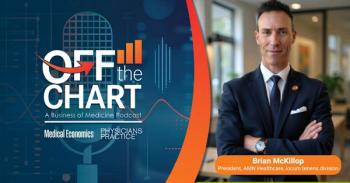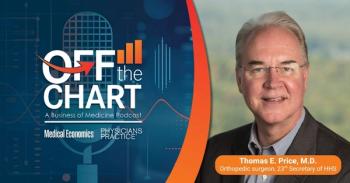
Private Practice Physicians 'Critical' to Moving Mobile Health Forward
In order for mobile health solutions to find success with providers and patients, physicians need to be involved at the development stage of initiatives.
When it comes to utilizing mobile health to improve both patient care and change the way healthcare is delivered in the U.S. in the years to come, private practice physicians are a "critical" component, according to one expert.
At this year's mHealth Summit in Washington, D.C., physicians, administrators, health IT experts, and others gathered to take a look at how mobile health - from patients utilizing home monitoring devices to physicians equipped with iPads - can move healthcare forward. Among the sessions at the event, was a roundtable discussion on mobile health's role in care coordination and accountable care, sponsored by FierceMobileHealthcare.
In exploring topics from moving care to the home and away from a hospital, and how mobile health can bring care teams together, the question of what role private practitioners play in this new age of technology was raised.
Jeff Zavaleta, a physician from Texas, said that all the devices and the wonders they can perform are great, but "private practice physicians are not at the table and you are all deciding things that are valuable" for physicians like him. He asked why it should be computer scientists and technologists who decide applications and their uses versus "those in the trenches" each day in private practice medicine.
Steven Dean, director of telemedicine operations, at Inova Health System, a five-hospital system in Northern Virginia, reflected on his own experience working with those in private practice.
"It's a partnership effort," he said, noting the need to have private practitioners enter their patient data in order to improve coordination of care and also have data readily accessible for other healthcare professionals.
"You are critical to the success of this paradigm shift in healthcare," Dean said.
Zavaleta also serves as chief medical officer for Graphium Health, a software company that designed an EHR for anesthesiologists. Unable to find such a system for his own pediatric office, Zavaleta joined the Graphium Health team, lending his clinical insights to the team of technologists who were charged with designing an ideal product for those also seeking the right solution for their practice.
This kind of partnership between physicians and computer engineers was lauded by Wendy J. Nilsen, health scientist administrator for the NIH's Office of Behavioral and Social Sciences Research. She shared her division's experiences in putting physicians and technologists together as "teams" to build healthcare solutions that can truly improve patient care.
That sentiment was echoed by Audie Atienza, senior health technology adviser for HHS, who also noted that all kinds of practitioners - from primary care to specialists - need a seat at Zavaleta's self-described "table" to make for the best mobile health solutions possible.
"What we could use more of is knowing what value different groups [of physicians] find in mobile technology," he said. "Don't assume a doctor is a doctor is a doctor."
Atienza added that all kinds of physicians need to be at the table and if they are not involved in the development of mobile health devices and solutions at HHS, "we won't adopt it."
Newsletter
Optimize your practice with the Physicians Practice newsletter, offering management pearls, leadership tips, and business strategies tailored for practice administrators and physicians of any specialty.






